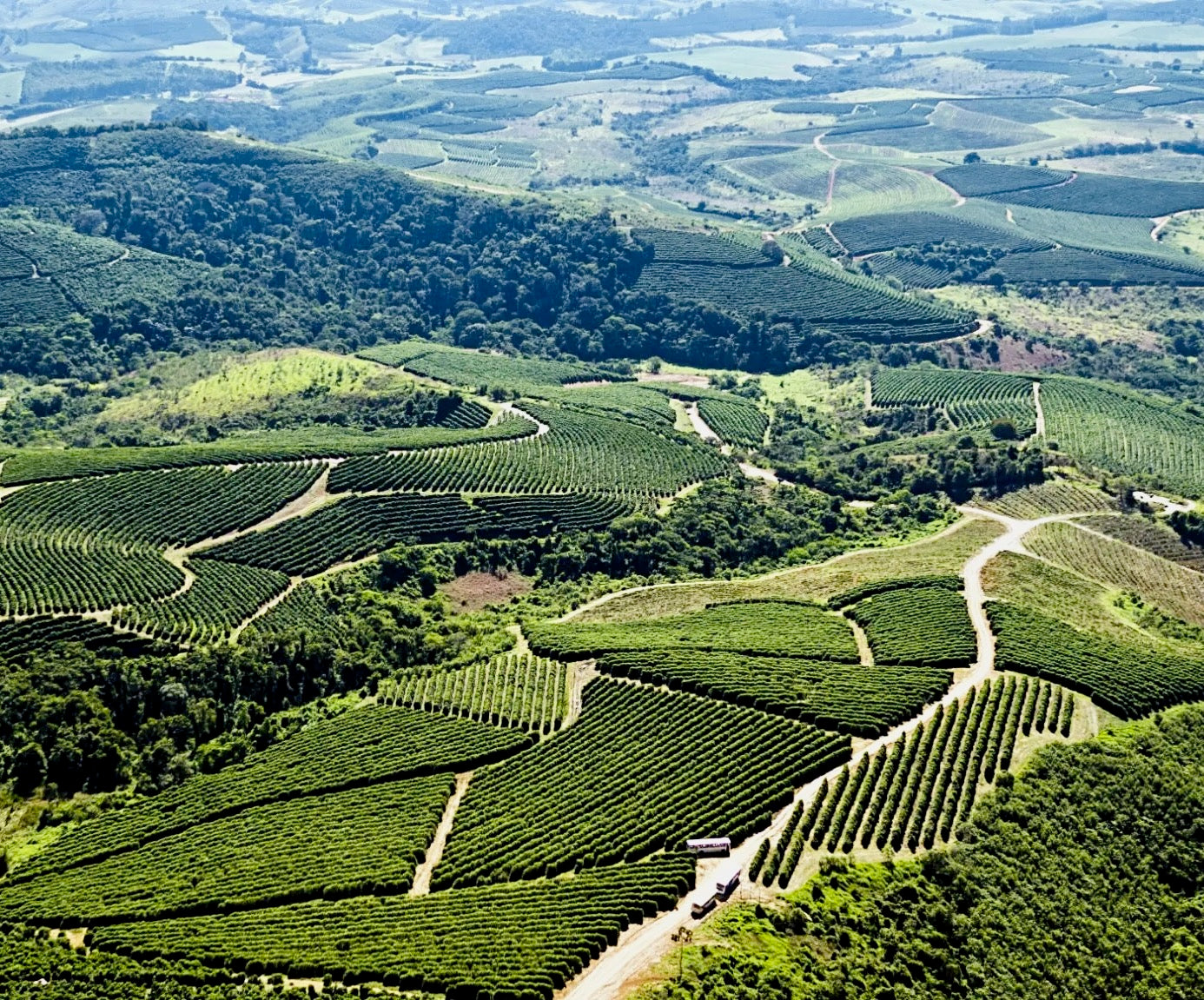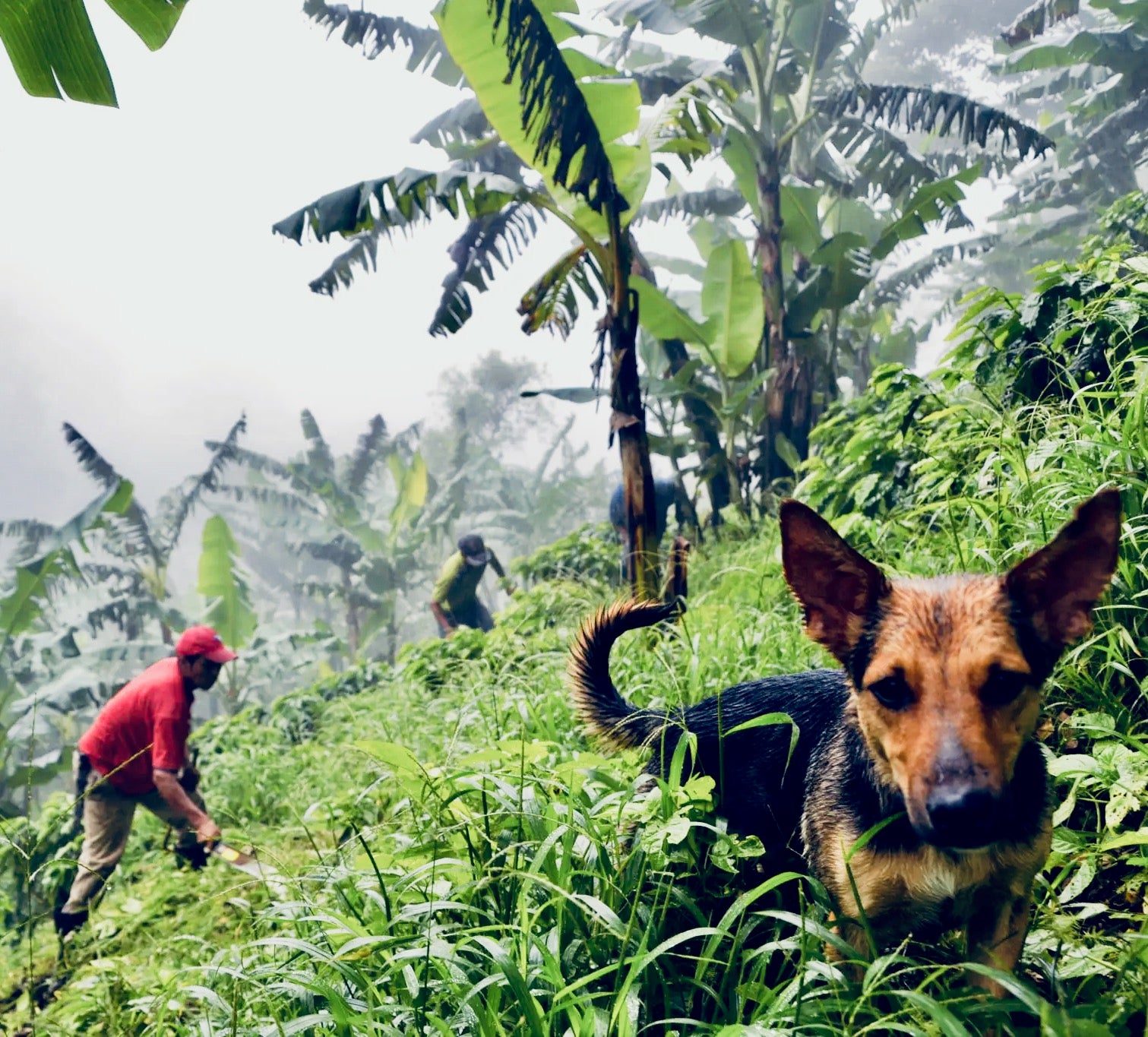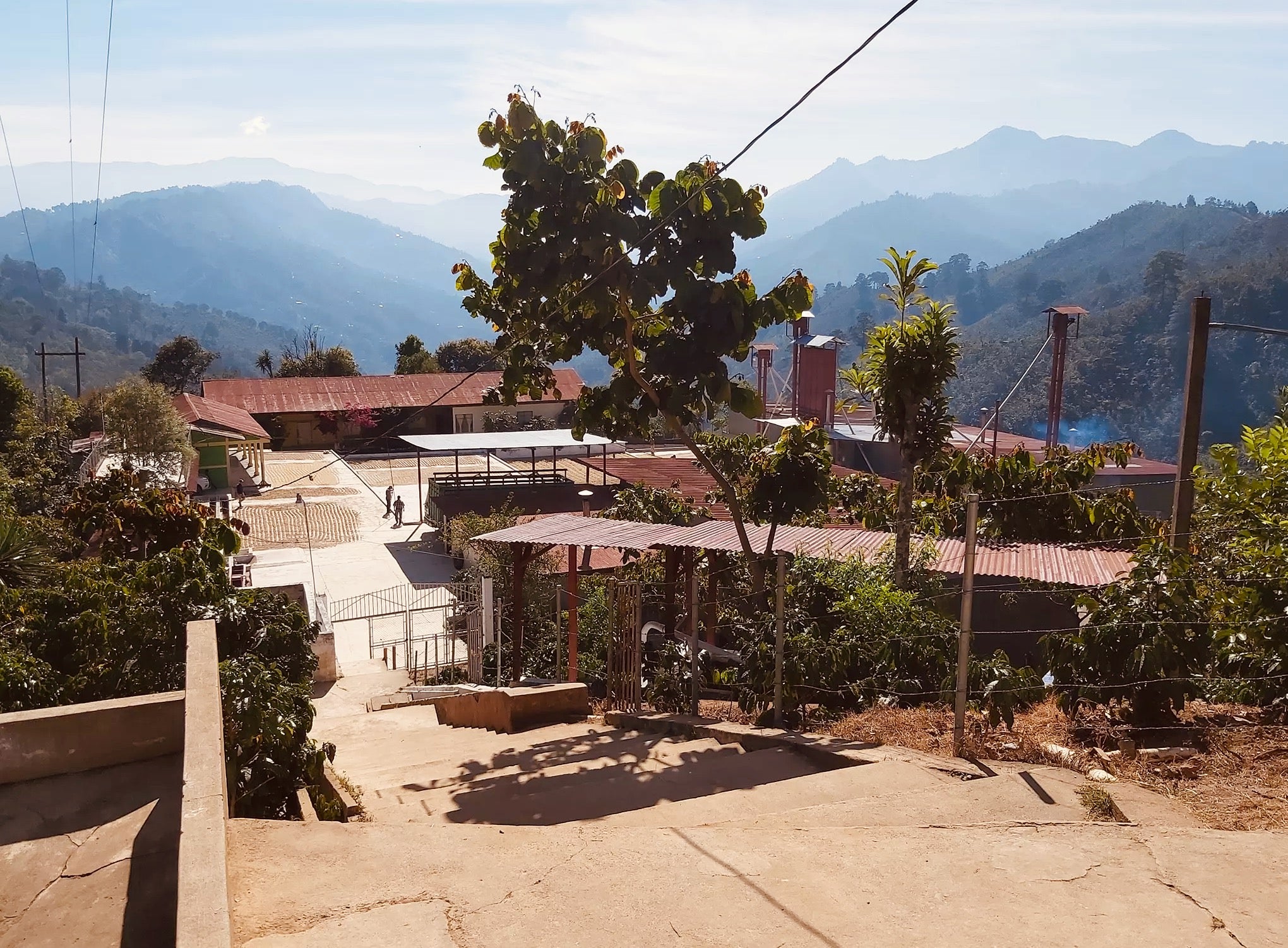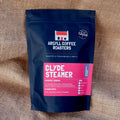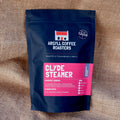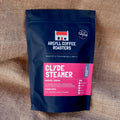Free UK shipping on all orders £18 and over
Clyde Steamer Espresso Blend
No reviews yet
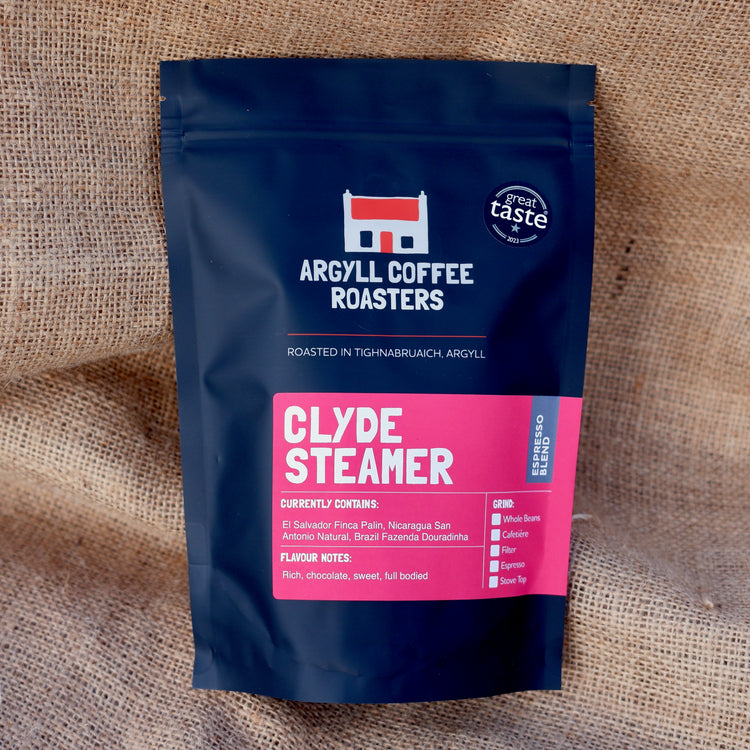
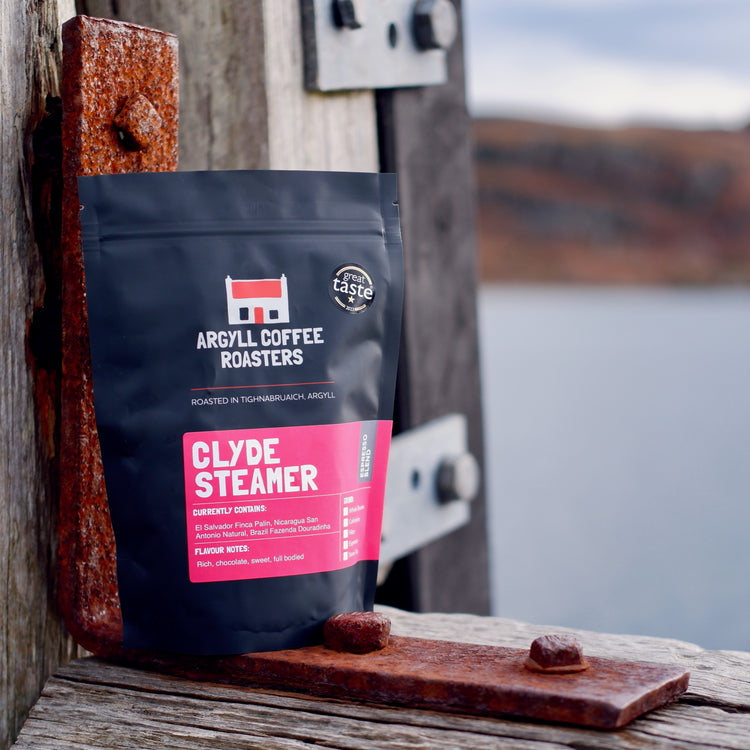
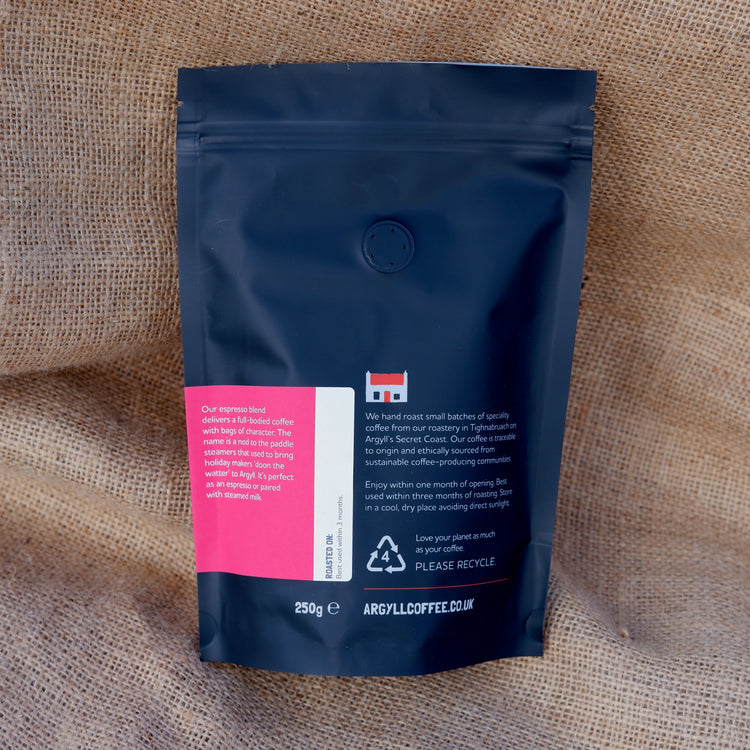
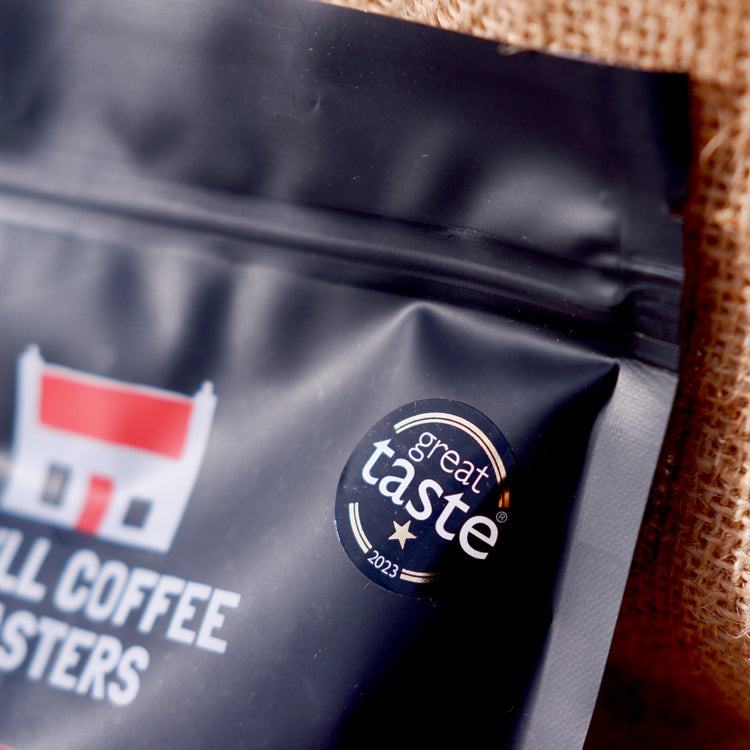

Clyde Steamer Espresso Blend

Our award-winning house espresso blend delivers a full-bodied coffee with bags of character. This blend is seasonally changing, but always delivers rich chocolate and nutty flavours.
Product variants:
Select grind: (Need help? View Grind guide)
Couldn't load pickup availability
Description
Brazil Fazenda Douradinha Arara
Farm:
Fazenda Douradinha
Processing:
Natural
Owner:
Adenísio and Sirlei de Araújo
Region:
Sul de Minas
Varietal(s):
Arara
Altitude:
1,100 metres above sea level
Town:
Juruaia - Mata do Sino
Nicaragua Finca San Antonio
Farm:
Finca San Antonio
Processing:
Anaerobic Natural
Owner:
Maria Felícitas Mairena de Günkel
Region:
Matagalpa
Varietal(s):
Parainema
Altitude:
1,100 metres above sea level
Town:
El Arenal Nature Reserve, Isabelia Mountain Range
Guatemala El Retiro Qisaya
Farm:
Finca El Retiro del Quisaya
Processing:
Fully washed
Owner:
Arabigos del Sur, S.A.
Region:
Chimaltenango
Varietal(s):
Bourbon, Pache
Altitude:
1,800 metres above sea level
Town:
San Martin Jilotepeque

